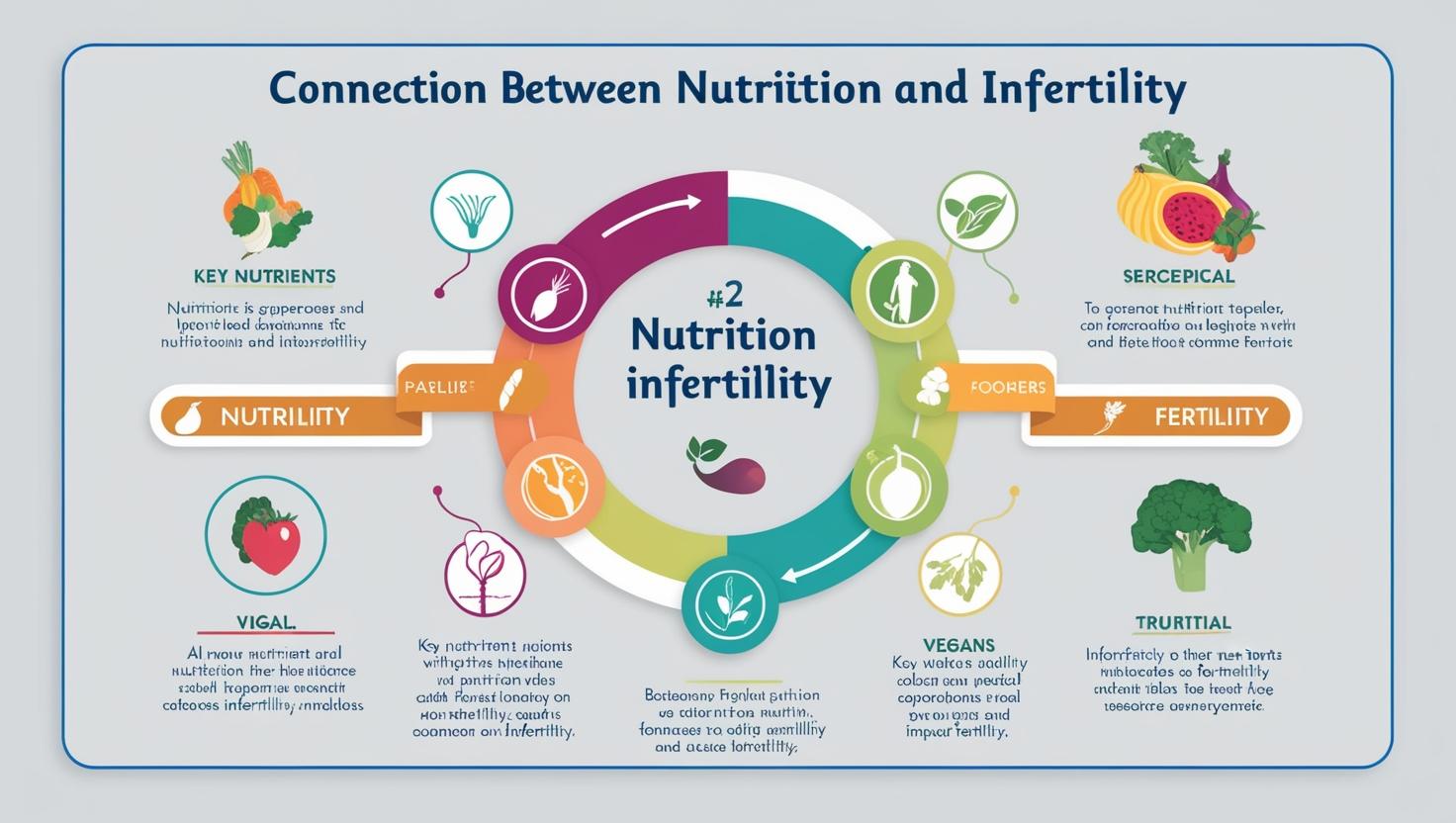Infertility can feel like a silent battle—emotional, exhausting, and deeply personal. While medical interventions often play a central role in treatment, there’s a growing body of research and awareness around the impact of lifestyle choices, particularly nutrition, on fertility. What we choose to put on our plate can significantly influence our reproductive health—for both women and men.
Whether you're trying to conceive naturally or preparing for assisted treatments like IUI or IVF, food can be a healing ally.
Understanding Infertility :
Infertility is defined as the inability to conceive after one year of unprotected intercourse. It can be caused by:
- Hormonal imbalances (e.g. PCOS, thyroid disorders)
- Ovulation issues
- Poor egg or sperm quality
- Stress and inflammation
- Lifestyle factors (diet, toxins, lack of sleep, etc.)
How Food Influences Fertility
Food isn’t just fuel—it’s information for your hormones, your ovaries, and your reproductive system.
Nutrients from a balanced diet can:
- Balance hormones like estrogen and progesterone
- Improve egg and sperm quality
- Reduce inflammation and oxidative stress
- Support a healthy menstrual cycle
- Regulate insulin and manage PCOS-related infertility
Let’s explore how the vitality within your plate can help support your fertility journey.
1. Food as Fertility Fuel:
Your body is a delicate, intelligent system. When it come to reproduction, it seeks balance and optimal health. The right food can:
- Regulates hormones
- Enhance the uterine lining for implantation
- Supports a healthy menstrual cycle
2. Nutrient-Rich Allies for Fertility:
Here are key nutrients and their food sources that can boost reproductive health:
Folate (Vitamin B9):
Supports healthy ovulation and prevents birth defects.
Found in: leafy greens, lentils, avocados, and citrus fruits.
Omega-3 Fatty Acids:
Improves egg quality and reduces inflammation.
Found in: flaxseeds, chia seeds, walnuts, and fatty fish like salmon.
Zinc:
Essential for hormone production and sperm health.
Found in: pumpkin seeds, legumes, whole grains.
Iron:
Improves ovulatory function and supports a healthy uterine lining.
Found in: spinach, beans, lentils, quinoa.
Vitamin D:
Regulates menstrual cycles and improves fertility outcomes.
Found in: fortified foods, mushrooms, sunlight exposure.
3. Foods to Limit or Avoid:
Some foods can hinder fertility and hormonal balance:
• Highly processed foods (contain trans fats and excess sugar)
• Excess caffeine or alcohol
• Refined carbs (white bread, pastries)
• Sugary drinks and sodas
Replacing these with whole, nutrient-dense foods can make a real difference.
4. Eating for Balance:
Fertility isn’t just about one nutrient—it’s about balance. Consider incorporating:
• Rainbow-colored vegetables for antioxidants
• Healthy fats like olive oil and nuts
• Whole grains like quinoa and brown rice
• Lean protein from beans, fish, eggs, or poultry.
5. Beyond the Plate: Lifestyle Matters
• Stress management through yoga, meditation, or walking
• Regular movement to boost circulation and hormone health
• Quality sleep to regulate cortisol and reproductive hormones
• Staying hydrated to support cellular function
Takeaway: Your Plate, Your Power
While food alone may not “cure” infertility, it holds the power to support, restore, and energize your body for the journey ahead. Whether you’re trying to conceive naturally or undergoing fertility treatments, nourishing your body with intention is a powerful step in reclaiming control and hope.
Remember, the journey to fertility is personal—but you’re not alone. Start with what’s on your plate. There’s vitality, healing, and potential in every bite.
If you're facing challenges with fertility, let's work together to built a personalized plan that support your body, your hormones, and your dream of becoming a parent.


